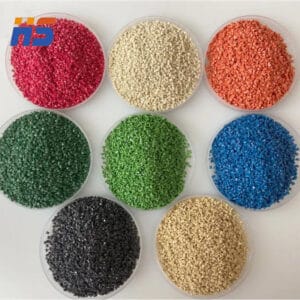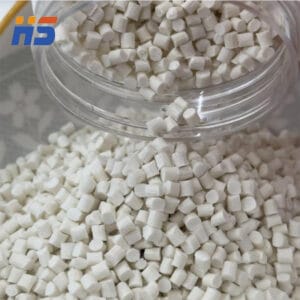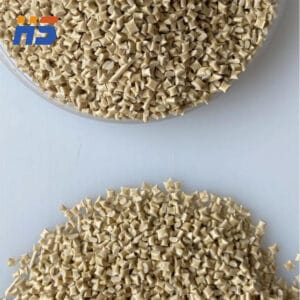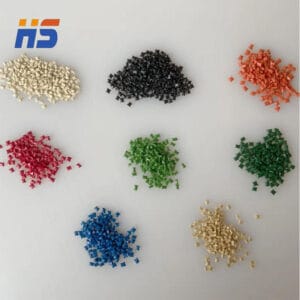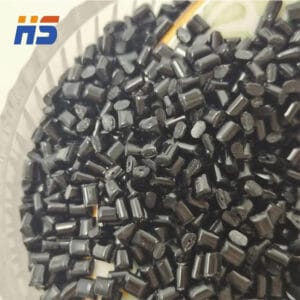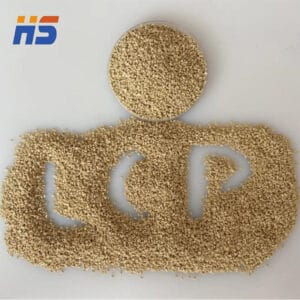-


LCP Resin , or Liquid Crystal Polymer plastic, is a type of thermoplastic known for its exceptional properties, particularly its high heat deflection temperature, strength, and chemical resistance. It’s a unique material that exhibits a highly ordered structure in both the melt and solid states, leading to its desirable characteristics.
High Heat Deflection Temperature:
LCPs can withstand high temperatures without significant deformation, making them suitable for applications requiring heat resistance. Exceptional Strength:
They maintain high strength even at elevated temperatures, and some LCPs even exhibit increased strength as the material thins. Chemical Resistance:
LCPs are highly resistant to a wide range of chemicals, including acids and solvents. Flame Retardancy:
Many LCPs are inherently flame retardant, meaning they don’t easily ignite or burn. Dimensional Stability:
LCPs exhibit good dimensional stability, meaning they maintain their shape and size even under stress or temperature changes. Good Dielectric Properties:
They have excellent dielectric strength and low dielectric loss, making them suitable for electrical and electronic applications. Low Moisture Absorption:
LCPs absorb very little moisture, which helps maintain their properties in humid environments.
-


LCP Granules
LCP plastic, or Liquid Crystal Polymer plastic, is a type of thermoplastic known for its exceptional properties, particularly its high heat deflection temperature, strength, and chemical resistance. It’s a unique material that exhibits a highly ordered structure in both the melt and solid states, leading to its desirable characteristics. Key Properties of LCP Plastic:
High Heat Deflection Temperature:
LCPs can withstand high temperatures without significant deformation, making them suitable for applications requiring heat resistance. Exceptional Strength:
They maintain high strength even at elevated temperatures, and some LCPs even exhibit increased strength as the material thins. Chemical Resistance:
LCPs are highly resistant to a wide range of chemicals, including acids and solvents. Flame Retardancy:
Many LCPs are inherently flame retardant, meaning they don’t easily ignite or burn. Dimensional Stability:
LCPs exhibit good dimensional stability, meaning they maintain their shape and size even under stress or temperature changes. Good Dielectric Properties:
They have excellent dielectric strength and low dielectric loss, making them suitable for electrical and electronic applications.
-


LCP plastic, or Liquid Crystal Polymer plastic, is a type of thermoplastic known for its exceptional properties, particularly its high heat deflection temperature, strength, and chemical resistance. It’s a unique material that exhibits a highly ordered structure in both the melt and solid states, leading to its desirable characteristics.
High Heat Deflection Temperature:
LCPs can withstand high temperatures without significant deformation, making them suitable for applications requiring heat resistance.
Exceptional Strength:
They maintain high strength even at elevated temperatures, and some LCPs even exhibit increased strength as the material thins.
Chemical Resistance:
LCPs are highly resistant to a wide range of chemicals, including acids and solvents.
Flame Retardancy:
Many LCPs are inherently flame retardant, meaning they don’t easily ignite or burn.
Dimensional Stability:
LCPs exhibit good dimensional stability, meaning they maintain their shape and size even under stress or temperature changes.
Good Dielectric Properties:
They have excellent dielectric strength and low dielectric loss, making them suitable for electrical and electronic applications.
Low Moisture Absorption:
LCPs absorb very little moisture, which helps maintain their properties in humid environments.
-


LCP Resin , or Liquid Crystal Polymer plastic, is a type of thermoplastic known for its exceptional properties, particularly its high heat deflection temperature, strength, and chemical resistance. It’s a unique material that exhibits a highly ordered structure in both the melt and solid states, leading to its desirable characteristics.
High Heat Deflection Temperature:
LCPs can withstand high temperatures without significant deformation, making them suitable for applications requiring heat resistance.
Exceptional Strength:
They maintain high strength even at elevated temperatures, and some LCPs even exhibit increased strength as the material thins.
Chemical Resistance:
LCPs are highly resistant to a wide range of chemicals, including acids and solvents.
Flame Retardancy:
Many LCPs are inherently flame retardant, meaning they don’t easily ignite or burn.
Dimensional Stability:
LCPs exhibit good dimensional stability, meaning they maintain their shape and size even under stress or temperature changes.
Good Dielectric Properties:
They have excellent dielectric strength and low dielectric loss, making them suitable for electrical and electronic applications.
Low Moisture Absorption:
LCPs absorb very little moisture, which helps maintain their properties in humid environments.
-


LCP Material or LCP plastic, or Liquid Crystal Polymer plastic, is a type of thermoplastic known for its exceptional properties, particularly its high heat deflection temperature, strength, and chemical resistance. It’s a unique material that exhibits a highly ordered structure in both the melt and solid states, leading to its desirable characteristics.
Key Properties of LCP Plastic:
High Heat Deflection Temperature:
LCPs can withstand high temperatures without significant deformation, making them suitable for applications requiring heat resistance. Exceptional Strength:
They maintain high strength even at elevated temperatures, and some LCPs even exhibit increased strength as the material thins. Chemical Resistance:
LCPs are highly resistant to a wide range of chemicals, including acids and solvents. Flame Retardancy:
Many LCPs are inherently flame retardant, meaning they don’t easily ignite or burn. Dimensional Stability:
LCPs exhibit good dimensional stability, meaning they maintain their shape and size even under stress or temperature changes. Good Dielectric Properties:
They have excellent dielectric strength and low dielectric loss, making them suitable for electrical and electronic applications.

